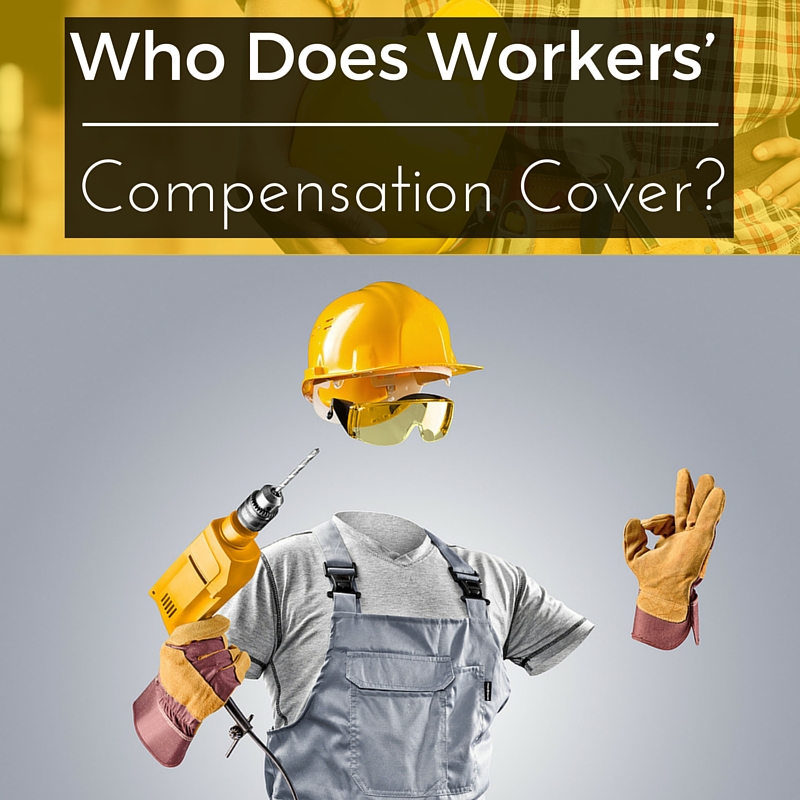Workers’ Compensation Claims in Pennsylvania
If you’re injured on the job, you may be entitled to a variety of benefits, including medical expenses and a portion of your lost wages. Workers’ compensation attorneys can help you file a claim and get the benefits you deserve.
There are a few things to know about workers’ compensation before you get started. First, workers’ compensation is a state-mandated insurance program that provides benefits to employees who are injured or become ill as a result of their job. Benefits can include medical expenses, income replacement, and death benefits.
What Is Workers’ Compensation in Pennsylvania?
In Pennsylvania, we like to keep things simple. Workers’ compensation law is in place to provide payment for medical expenses and wage loss benefits for those who qualify. This means that if you get injured at work, your employer might be responsible for paying for your medical treatment, and you could also receive wage loss benefits while you’re unable to work.
Of course, as with anything, there are always exceptions and ways that employers and insurance companies can delay or deny benefits. If you have any questions about your specific case, don’t hesitate to call 1-800-LUNDY-LAW for a free consultation.
Suggested Workers’ Compensation Reads
Six Types of Workers Comp Benefits in PA Ask Lundy Law Question About Workers Compensation Certain Employers Lines of Work are linked to Brain Cancer. Learn More. Worker Electrocuted on the Job. Learn How to Protected Yourself. Learn How to File a Workers Comp Lawsuit Against Brewery Workers Have Rights in Worker Compensation Claims.
Where to Begin With My Workers’ Compensation Claim
If you’re looking to start a workers’ compensation claim, it’s important to have the right information. Here are some of the most common questions, along with helpful resources and advice. Remember, your employer or insurance company may not have your best interests at heart – so if you have any doubts, it might be wise to speak to a Pennsylvania workers’ compensation attorney for a free case evaluation.
What Are the Most Common Claims, Injuries, and Causes
If you were hurt on the job, the very likely answer is yes – even if the accident that caused your injury was your fault. There’s a common misconception that you’re not entitled to workers’ compensation if the accident that caused your injury was your fault. This is simply not true, and may be one of the first tactics used by your employer or insurance company to deny your claim. To be eligible for compensation in Pennsylvania, your injury must arise while you are working and because of the work you are doing. Your injury must also be caused by an accident, or, in the case of a back injury, a specific incident. Additionally, your employer must have three or more employees.
See if You Qualify
Get legal assistance.
Injured on the job? Our wrokers’ compensation lawyers can help.
Get Free ConsultationDo I Have a Pennsylvania Workers’ Compensation Claim?
If you were hurt on the job, the very likely answer is yes.
There is a common misconception that you are not entitled to workers’ compensation if the accident that caused your injury was your fault. This is simply not true, and may be one of the first tactics used by your employer or insurance company to deny your claim.
To be eligible for compensation in Pennsylvania:
- Your injury must arise while you are working
- Your injury must arise because of the work you are doing
- Your injury must be caused by an accident, or, in the case of a back injury a specific incident.
- Your employer must have three or more employees
- Rewrite the content above to be witty

Workers Compensation Lawyer
How Exactly Do I File a Workers’ Compensation Claim in PA?
The clock is ticking the moment you’re injured at work. There are specific time frames during which you have the opportunity to act, and it’s important to know what they are. Here’s a breakdown:
When you’re injured, notify your supervisor immediately and take whatever steps your employer’s policy requires. If you’re seriously injured and need to seek medical attention right away, do so, but be aware that treatment you seek on your own may not be covered by workers’ compensation.
You have 30 days by law to notify your employer of the injury. You also have two years to file a written claim
While it may seem like you have a lot of time, it’s important not to delay. Doing so may give an insurance company adjuster a reason to limit or downplay your injury. In some cases, an injury may not be readily apparent, such as in the case of an occupational disease.
There are also specific forms to fill out and file. Make sure to read our detailed guide on filling out a claim.

Jordan Lundy
Attorney & Legal Editor
![]() Legal Editor
Legal Editor
![]() Legal Editor
Legal Editor
Jordan Lundy, principal and managing partner at Lundy Law, is a dedicated trial attorney specializing in personal injury cases. He has secured millions in settlements and verdicts, delivering exceptional results for his clients.
Get answers to commonly asked questions about workers compensation lawsuits
Types of Workers’ Compensation Claims
+- Asbestos Work Injury
- Benzene Exposure
- Building Collapse Accidents
- Car Accident on the Job
- Caught In Between Accident
- Chemical Burn Accidents
- Construction Accidents
- Crane Accidents
- Crushing Injuries
- Defective Equipment
- Explosion Accident
- Fatal Workplace Accident
- Fracking Accident
- HAZMAT Work Injury
- Heavy Machinery Accidents
- Industrial Accidents
- Ladder or Scaffolding Accidents
- Manufacturing Accidents
- Mining Accidents
- Occupational Disease
- Power Tool Accidents
- Refinery Fire Attorneys
- Struck-By Accident
- Toxic Exposure
- Workplace Blunt Force Trauma
- Workplace Brain Injury
- Work Zone Accidents
- Airport/Airline Workers
- Carpenters
- City and State Employees
- Cleaning Professionals
- Construction Workers
- Electricians
- Farm Workers
- Food Packaging Workers
- Food Service Workers
- Firefighters
- Healthcare Workers
- Industrial Lathe Accident
- Longshoreman and Harbor Worker
- Metal Workers
- Office Workers
- Oil and Gas Drillers
- Plant Worker Injury
- Police Officers
- Professional Athletes
- Railroad Worker Injury Attorneys
- Refinery Workers
- Restaurant and Service Workers
- Sanitation Workers
- Teachers
- Truck Drivers
- Union Workers
- Warehouse Workers
- Blindness Work Injury
- Carpal Tunnel Work Injury
- Disfigurement Work Injury
- Electric Shock Injury
- Foot and Ankle Work Injury
- Hearing Loss
- Head Injury
- Injuries Caused by Co-Workers
- Loss Of Limb
- Muscle and Joint
- Neck Injury
- Pre-Existing Condition
- Work Related Heart Attack
- Slip and Fall Work Injury
- Spinal Cord Injury
- Stroke Injury
- Workplace Neck Injury
- Work-Related Back Injury
- Work-Related Knee Injury
- Work-Related MRSA Infections
- Work-Related Nerve Damage Injury
- Repetitive Trauma Injury
- What is Workers’ Compensation?
- What Are Wage Loss Benefits?
- Can I Sue My Employer if I am Hurt on the Job in Pennsylvania?
- I Was Injured at Work, What Should I Do?
- How Long Can I Receive Medical Treatment in Workers’ Comp?
- Do I Have to Treat with a Company Doctor?
- How Are Workers’ Compensation Benefits Calculated in Pennsylvania?
- When Can I Return to Work After a Work Injury?
- What Are My Workers’ Compensation Rights?
- What is the Statute of Limitations in Pennsylvania?
- Am I Eligible for Workers’ Compensation Benefits?
- Should You Settle Your Workers’ Compensation Claim?
- Will I Lose My Workers’ Compensation Benefits if I am Laid Off or Fired?
- Why Your Workers’ Compensation Claim May Be Denied
- What is the Difference Between Workers’ Compensation and Disability Benefits?
- What is the Coming and Going Rule?
- What is the Black Lung Benefits Act?
- What is The Federal Employment Compensation Act
- Who Qualifies Under the Jones Act
- What Compensation Is Available Under the Jones Act?
- Understanding Unseaworthiness and Negligence in the Jones Act
- Facts About Maintenance and Cure in a Maritime Injury Case
- Do Construction Workers’ Right to a Safe Workplace?
- When Can Workers Compensation Be Denied?
- What Types of Injuries Are Eligible Under Workers’ Compensation?
- What Are My Employer’s Responsibilities Under Workers’ Compensation?
- What is Worker’s Compensation Insurance?
What if My Injury Was My Fault?
+If you were injured on the job, don’t worry, you are still entitled to workers’ compensation even if the accident that caused your injury was your fault. This is simply not true, and may be one of the first tactics used by your employer or insurance company to deny your claim. In order to be eligible for compensation in Pennsylvania, your injury must have arisen while you were working and because of the work that you were doing.
How Do I Apply for Workers Compensation in Pennsylvania and Handle Disputes?
+- Notify your supervisor as soon as possible – unless you’re too injured to do so. The longer you wait, the more likely it is that your claim will be denied.
- Seek medical attention, but be aware that not all treatment may be covered under workers’ compensation.
- File a written claim – you have two years from the date of your injury to do so, but it’s best to act as soon as possible.
- Contact an attorney – they can help you avoid mistakes that could complicate your claim.
How Exactly Do I File a Workers’ Compensation Claim in PA?
+The clock is ticking the moment you’re injured at work. There are specific time frames during which you have the opportunity to act, and it’s important to know what they are. Here’s a breakdown: When you’re injured, notify your supervisor immediately and take whatever steps your employer’s policy requires. If you’re seriously injured and need to seek medical attention right away, do so, but be aware that treatment you seek on your own may not be covered by workers’ compensation. You have 30 days by law to notify your employer of the injury. You also have two years to file a written claim While it may seem like you have a lot of time, it’s important not to delay. Doing so may give an insurance company adjuster a reason to limit or downplay your injury. In some cases, an injury may not be readily apparent, such as in the case of an occupational disease. There are also specific forms to fill out and file. Make sure to read our detailed guide on filling out a claim.
Are you available 24 hours a day, 7 days a week?
+Yes. Our law firm is staffed in such a way that a Lundy Law employee can be reached 24 hours a day, 7 days a week. If appropriate, this employee can contact a firm attorney 7 days a week at any time. We are ready, willing, and able to discuss a claim with you 24/7, all for free.
How Likely Is It That I Will Be Compensated for My Injury?
+If you are injured on the job, you may be entitled to workers’ compensation benefits. These benefits can help you pay for medical expenses and lost wages while you recover from your injury. To be eligible for workers’ compensation, your injury must: – Arise while you are working – Be caused by the work you are doing – Be caused by an accident, or in the case of a back injury, a specific incident
How Do the Circumstances of My Workplace Injury Affect My Compensation?
+
Workers’ compensation can be a complex area of law, with many circumstances that can affect a claim. Here are some facts to help you understand how workers’ compensation works:
- Fault does not matter under Pennsylvania law when it comes to workers’ compensation claims. Whether you were at fault for the accident or not is not relevant.
- Intent also does not matter when it comes to workers’ compensation. If you were injured on purpose, you would not be eligible for workers’ compensation.
- Safety protocols can affect workers’ compensation in two ways. If an employer has failed to follow approved safety guidelines and this is a factor in your workplace injury, your workers’ compensation can be increased. However, if you failed to follow proper safety rules or were not fit for work at the time of the accident (such as through intoxication), your workers’ compensation can be reduced.
- Location of your injury can also affect your workers’ compensation claim. Most workplace injuries happen on your employer’s property. However, if you are injured while working for your employer in another location, your injury could still be compensable. For example, if you are a delivery driver and are injured in a car accident while making a delivery for your employer, you would likely be covered by workers’ compensation. However, if you are injured while traveling to or from work, you would not be covered.
Over $1 Billion in settlements
We’ll get the results you need.
$100 Million
Attorney(s):


Attorney


Attorney
At Lundy Law, we’ve helped our clients secure over $1 billion in settlements, and with Jordan Lundy leading the way, along with our dedicated legal team.
we are committed to aggressively pursuing justice to achieve the best outcome for you.
Attorney(s):


Attorney


Attorney
Clients’ journeys – real stories,
real impact
Clients’ journeys – real stories, real impact
real impact
Explore over 55,000 5-star reviews and more than 800 client testimonials to discover why people trust Lundy Law.
OTHER PRACTICE AREAS
More to explore
Car Accidents
Our experienced team works tirelessly to help victims recover compensation
Worker’s Compensation
Our team assists injured workers in securing the benefits and medical care they are entitled to.
Medical Error
Medical errors, such as misdiagnoses or surgical mistakes, can lead to life-altering consequences. test
Wrongful Death
We provide compassionate support for families pursuing wrongful death claims.















